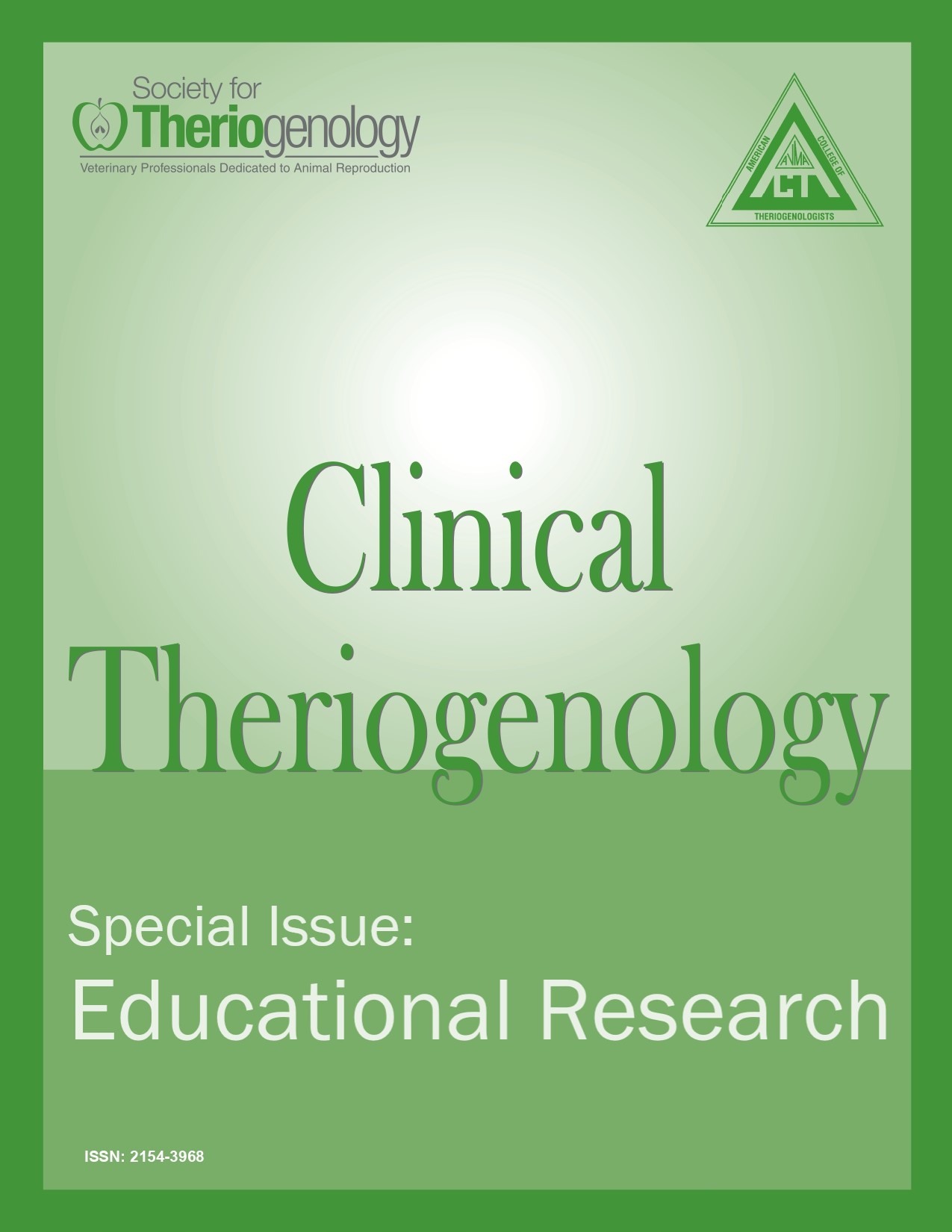Use of abstract reflection to enhance student learning from theriogenology practical classes
Abstract
Veterinary training is a resource-consuming process. Practical sessions throughout the curriculum are considered vital aspects of professional training and consume large amounts of time, space, and human resources and are not without risks to human and animal health. It is, therefore, important that the educational experience is optimized during practical sessions. Mentee dialogue with mentors, as part of institutional peer teaching support, aimed to optimize the practical sessions to develop professional expertise (knowledge and skills) of veterinary theriogenology students. We used the theory of experiential learning and reflective observation as a means of enhancing learning during the practical sessions. We attempted to do this by discussing abstract concepts associated with authentic learning tasks covered in each practical session. Anonymous end-of-course student feed-back revealed that the process encouraged in-depth and alternative critical thinking and discussion in the groups, which was a fun way for them to embed the knowledge and develop the skills being taught. The use of ‘abstract reflection’ appears to be a useful and efficient way of enhancing the value of laboratory practical teaching and learning resources within the veterinary theriogenology curriculum. The vibrancy associated with collegiate interactions between academic staff members and educational designers results in a more enthusiastic and beneficial teaching culture and learning environment, and the development of students to become better, agentic, and more deliberate professionals.
Downloads
References
2. National Research Council. How people learn: brain, mind, experience, and school: expanded edition. Washington, DC; The National Academies Press: 2000.
3. Kolb AY, Kolb DA: The learning way: meta-cognitive aspects of experiential learning. Simul Gaming 2009;40:297–327. doi: 10.1177/1046878108325713
4. Kolb AY, Kolb DA: Learning styles and learning spaces: enhancing experiential learning in higher education. Acad Manag Learn Educ 2005;4:193–212. doi: 10.5465/AMLE.2005.17268566
5. Kolb AY, Kolb DA, Passarelli A, et al: On becoming an experiential educator: the educator role profile. Simul Gaming 2014;45:204–234. doi: 10.1177/1046878114534383
6. Reeve J, Tseng CM: Agency as a fourth aspect of students’ engagement during learning activities. Contemp Educ Psychol 2011;36:257–267. doi: 10.1016/j.cedpsych.2011.05.002
7. Trede F, McEwen C: Carving out the territory for educating the deliberate professional. In: Trede F, McEwen C: editors. Educating the deliberate professional. Professional and practice-based learning. New York; Springer: 2016:15–28.
8. Trede F, Smith M: Teaching reflective practice in practice settings: students’ perceptions of their clinical educators. Teach High Educ 2012;17:615–627. doi: 10.1080/13562517.2012.658558
9. Jackson D, Trede F: The role of reflection after placement experiences to develop self-authorship among higher education students. In: Billett S, Orrell J, Jackson D, Valencia-Forrester F: editors. Enriching higher education students’ learning through post-work placement interventions. Professional and practice-based Learning. New York; Springer: 2020:189–208.
10. Trede F: Role of work-integrated learning in developing professionalism and professional identity. Asia Pac J Educ 2012;13:159–167. Available from: https://www.scopus.com/inward/record.uri?eid=2-s2.0-84873884299&partnerID=40&md5=eb67b243428f7c24e12b6e8e7d54fcc1 [cited 16 December 2022].
11. Laurillard D: Teaching as a design science. Building pedagogical patterns for learning and technology. In: Teaching as a design science. New York; Taylor & Francis: 2012:187–208.
12. Cripps SJ, Vinten CEK: Veterinary undergraduates’ attitudes to and understanding of clinical skills learning. Vet Rec 2022;191:e1320. doi: 10.1002/vetr.1320

This work is licensed under a Creative Commons Attribution-NonCommercial 4.0 International License.
Authors retain copyright of their work, with first publication rights granted to Clinical Theriogenology. Read more about copyright and licensing here.





